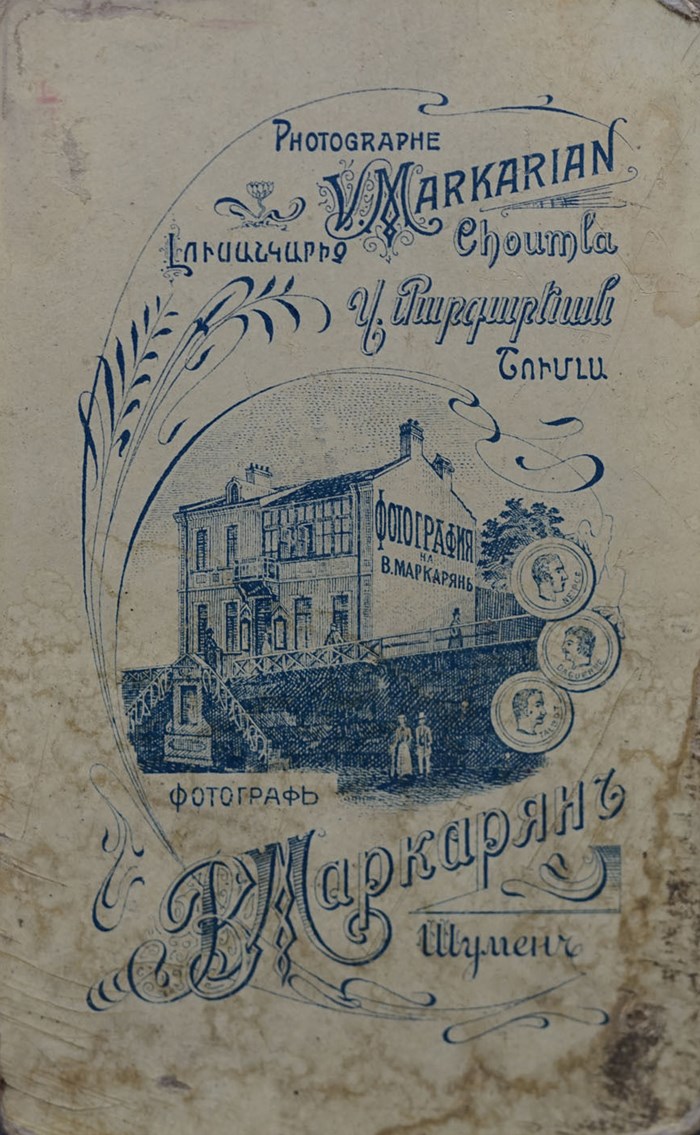
Vram Markarian
1869 - ?
1890 - 1910s
Vram Markarian, the patriarch of the well-known Bulgarian-Armenian family of photographers, had immigrated to Bulgaria in 1891 from Caesarea in the Ottoman Empire. He was schooled in the medium at his hometown and was able to establish his own private studio immediately after relocating to Shumen. The efforts of the talented photographerwere crowned with success and the studio expanded its activities quite soon after its foundation with the younger Markarian sibling joining the company, which was thereafter renamed as Markarian Brothers.
Markarian's photographs are mostly portraits. Group and family sittings are among the most memorable and they reveal Markarian’s talent for staging multi-figure compositions. In 1900, the photographer moved to a new, three-storey building, the top floor of which was specially designed as a naturally-lit studio pavilion with a glass ceiling that also contained a great range of props and painted backgrounds. It was the most opulent photographic pavilion of the time in Bulgaria and a drawing of its edifice was later incorporated into the studio’s official backstamp.(1) Markarian did not limit himself solely to his lavish and technically well-equipped pavilion, and often shot his portraits in outdoor settings. These more simple and straightforward images show the photographer’s experimental zeal, which he passed onto his son Mark – one of the founding figures of Bulgarian art photography.
1) Iyvo Kolev, ‘Nepoznyat Mark Markarian’, [‘Unknown Mark Markarian’, in Bulgarian], 04.07.2015, http://www.lifebites.bg/nepoznatiat-markarian/
Nationality
Bulgarian, Armenian
Region
Bulgaria, Ottoman Empire
City
Caesarea (b.), Shumen
Studio
Markarian Frères, V. Markarian
Activity
studio
Media
analogue photography
Collections
Lusadaran Armenian Photography Foundation, Yerevan


